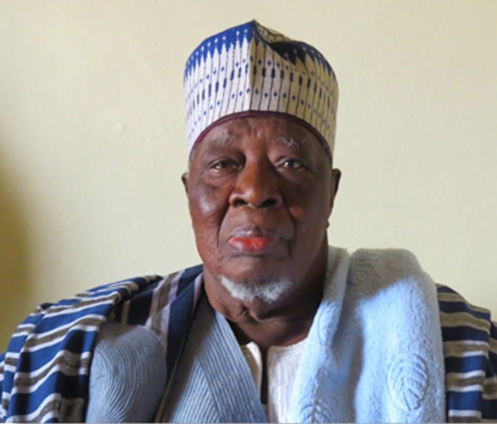Naba Professor John Sebiyam Nabila, former President of the National House of Chiefs and Paramount Chief of the Wulugu Traditional Area, has passed away in Accra after a short illness. He was 85.
A book of condolence has been opened at his private residence in East Legon, where, on Sunday, 2 November, representatives of the Nabari Naaba, Naambuyi Dokurugu, led by Ali Dokurugu, visited to sign the book on his behalf.
Born in 1940, Prof. Nabila served as Paramount Chief of the Wulugu Traditional Area in the West Mamprusi District for over three decades, emerging as a towering figure in traditional leadership and national governance. He also held the title of Chief of Kpasenkpe, the maternal home of Dr Mahamadu Bawumia, and oversaw traditional authority in communities including Duu, Nabari, Wulugu, Nameyela, Sariba, Arigu, and Dibsi Arba, among others, in the current North East Region.
In early October, he enskinned the new Chief of Duu, one of his last traditional acts before his passing.
His remains are expected to be transported to Kpasenkpe on 16 November, with burial scheduled for 17 November in accordance with custom.
A renowned academic, statesman, and development advocate, Prof. Nabila rose to national

prominence when he was elected President of the National House of Chiefs, a position he held from 2008 to 2016. During his tenure, he led key reforms to strengthen traditional governance, promote peace, and protect the sanctity of chieftaincy institutions. One of his enduring legacies was authoring the Code of Royal Ethics for the National House of Chiefs — a document that remains a guiding reference for chiefs across Ghana.
Beyond chieftaincy, Prof. Nabila’s influence extended to academia and politics. He served under the Limann administration as Minister for Information and Tourism, and earlier as Minister for Information, Presidential and Special Affairs.
His academic journey began at the University of Ghana, Legon, where he joined the Department of Geography and Resource Development, rising through the ranks to become Associate Professor and Head of Department. He also directed the Population Impact Project, where his research and advocacy shaped population policy and family welfare programs in Ghana.
As a development-oriented leader, Prof. Nabila spearheaded initiatives that improved water access, health facilities, and educational infrastructure in his traditional area. His leadership was marked by a unique blend of traditional wisdom and modern administrative principles, earning him widespread respect.
He was also known for his role in national peacebuilding, often serving as a mediator in critical national issues. Notably, he played a key role in the 2015 resolution of the strike by Ghanaian doctors, helping to broker dialogue between the government and medical professionals.
Prof. Nabila’s distinguished public service extended to several boards and international bodies, including:
- Board Member, Ghana National Petroleum Corporation (GNPC)
- Vice Chairman, National Population Council
- Member, Legal Affairs Committee, National House of Chiefs
- Member, International Union for the Scientific Study of Population
- Member, Social Science and Medicine Africa Network
- Editor, Bulletin of the Ghana Geographical Association
Tributes have begun pouring in. The Member of Parliament for Walewale, Dr Tiah Kabiru, described his death as “a huge blow to the Walewale Constituency and Ghana at large,” calling him “a trailblazer, an erudite politician, and a scholar par excellence who paid his dues to Mother Ghana.”
Prof. Nabila will be laid to rest among his ancestors in Kpasenkpe, but his legacy as a visionary leader, academic, and traditional statesman will live on for generations.
Source: Muftawu Nabila Abdulai
ALSO READ:



